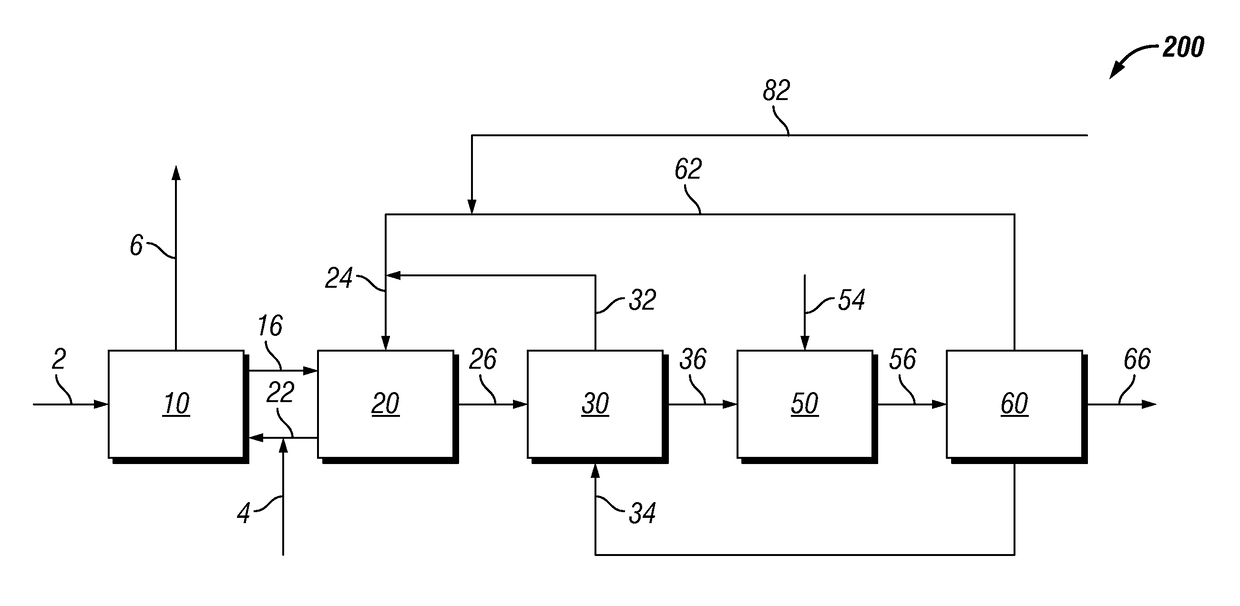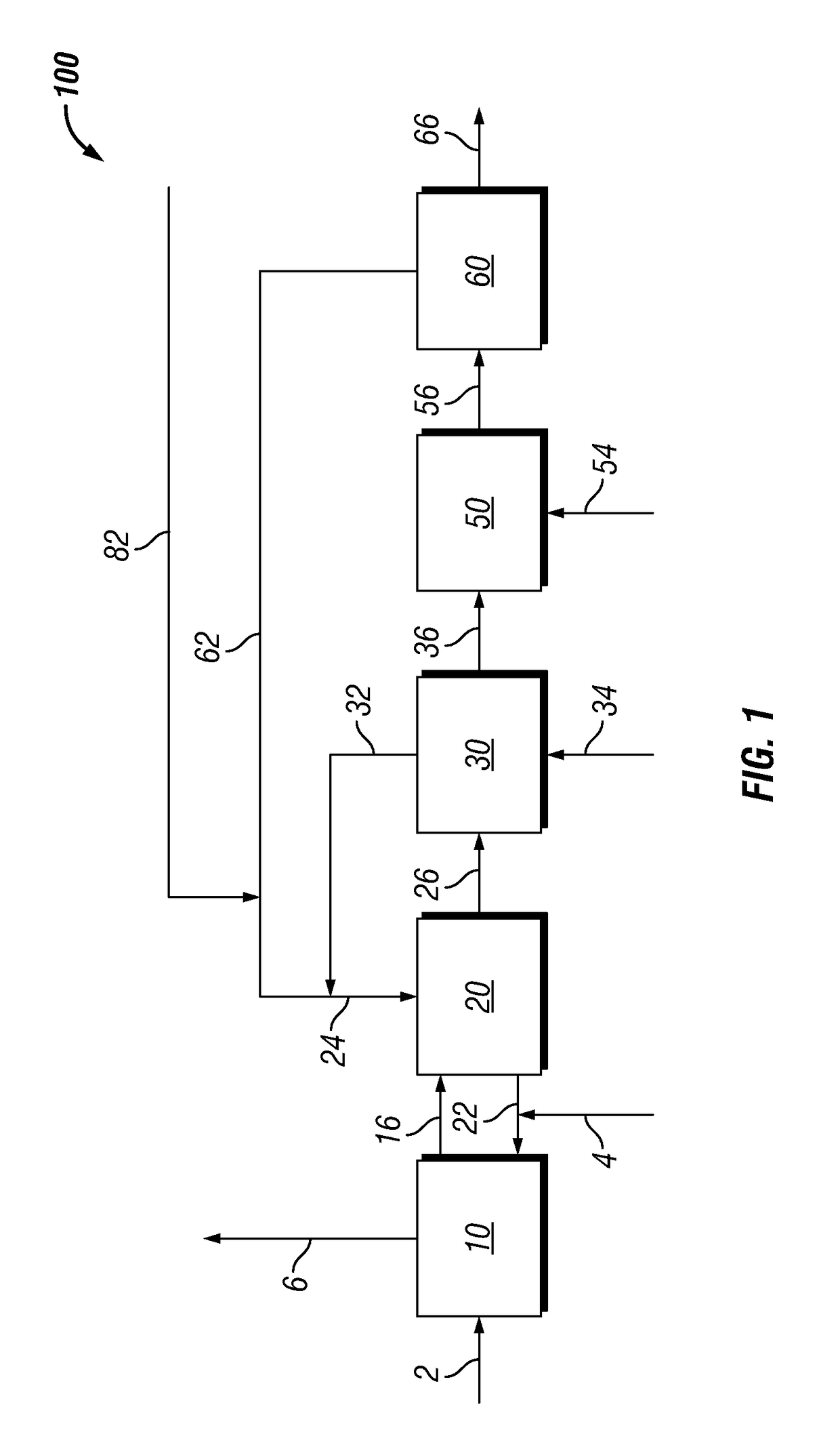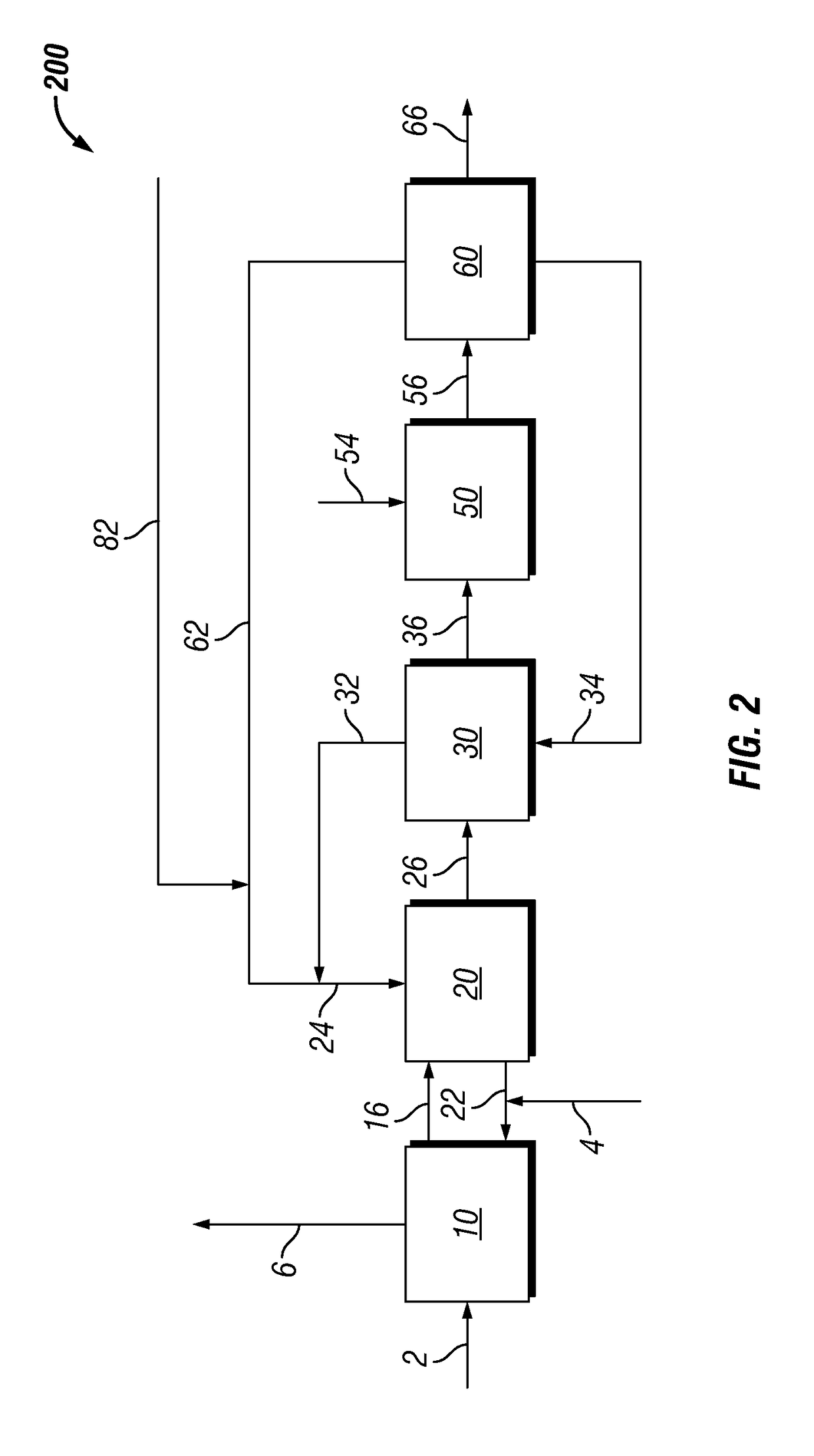Biomass treatment for hydrothermal hydrocatalytic conversion
a technology of hydrocatalytic conversion and biomass treatment, which is applied in the field of biomass treatment, can solve the problems of difficult penetration of lignocellulose biomass with chemicals, difficult to break down the long chain polymer structure of cellulose into carbohydrates that can be used to produce fuel, and difficult to achieve the effect of reducing the effectiveness of hydrothermal hydrocatalytic treatment and minimizing the amount of water used
- Summary
- Abstract
- Description
- Claims
- Application Information
AI Technical Summary
Benefits of technology
Problems solved by technology
Method used
Image
Examples
example 1
Metals Removal by Strong Acid
[0158]75.1 grams of 1.0 wt % sulfuric acid in deionized water were contacted with 10.0 grams of southern pine chips of nominal 5 mm×4 mm×3 mm size and 39% moisture, by shaking longitudinally in a Teflon capped jar overnight at room temperature. Liquid was separated via filtration in a filter funnel using Whatman GF / F paper, and analyzed via inductively-coupled plasma atomic spectroscopy for metals.
[0159]A separate sample of the untreated wood was combusted, and the residual metals and ash dissolved in concentrated sulfuric acid for analysis by atomic spectroscopy.
[0160]Results indicated removal of 11-ppm silicon, 35 ppm phosphorous, 61 ppm manganese, 209 ppm magnesium, 12 ppm aluminum, 3.6 ppm iron, 530 ppm potassium, 135 ppm sodium, and 811 ppm calcium via the 1% acid treatment. This corresponded to complete removal of metals within analytical error, except for manganese which was only indicated to be removed at 67% of the amount assess for the untreate...
example 2
Metals Removal by Weak Acid
[0161]Example 1 was repeated with use of 1.5 weight percent acetic acid in deionized water as the treatment solution. 49.2 grams of this solution were contacted with 7.31 grams of the untreated southern pine wood chips, again with shaking overnight at room temperature. Analysis of the liquid filtrate by atomic spectroscopy indicated removal of 13-ppm silicon, 34-ppm manganese, 135 ppm magnesium, 323 ppm potassium, 61 ppm sodium, and 457 ppm calcium via the 1% acid treatment. The amounts removed corresponded to 35-100% of the amount of metal assessed as present on the initial untreated wood sample. Chlorine was also removed, as indicated by the presence of up to 10 ppm chlorine in treatment effluents.
[0162]These results show that metals and chloride present in wood can be removed by contacting with dilute sulfuric or carboxylic (acetic) acid. Metal removal is improved via use of strong acid (sulfuric vs carboxylic).
example 3 and 4
Metals Removal by Deionized Water
[0163]For example 3, 100-grams of 0.05 wt % sulfuric acid in deionized water were contacted with 20.0 grams of southern pine wood chips (39% moisture) by shaking longitudinally overnight at room temperature in a jar with Teflon lined cap. Analysis of filtered supernatant via atomic spectroscopy revealed 57 ppm manganese, 213 ppm magnesium, 467 ppm potassium, and 860 ppm calcium, corresponding to complete removal of all metals except manganese, for which 63% removal was indicated.
[0164]For example 4 with deionized water only as treatment agent, removal potassium and sodium was complete within measurement error, while removal of manganese was negligible, and removal of magnesium and calcium was only 12 to 13 percent of that present in the untreated wood.
[0165]These results indicate that even a small amount (0.05 wt %) of acid is effective in dramatically improving the metals removal in pretreatment, especially for metals known to form multivalent catio...
PUM
| Property | Measurement | Unit |
|---|---|---|
| temperature | aaaaa | aaaaa |
| wt % | aaaaa | aaaaa |
| wt % | aaaaa | aaaaa |
Abstract
Description
Claims
Application Information
 Login to View More
Login to View More - R&D
- Intellectual Property
- Life Sciences
- Materials
- Tech Scout
- Unparalleled Data Quality
- Higher Quality Content
- 60% Fewer Hallucinations
Browse by: Latest US Patents, China's latest patents, Technical Efficacy Thesaurus, Application Domain, Technology Topic, Popular Technical Reports.
© 2025 PatSnap. All rights reserved.Legal|Privacy policy|Modern Slavery Act Transparency Statement|Sitemap|About US| Contact US: help@patsnap.com



